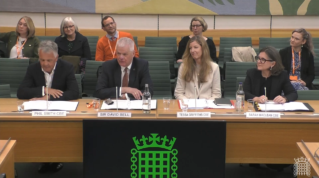Laws abolishing the Institute for Apprenticeships and Technical Education (IfATE) and transferring its powers to the education secretary will be debated in parliament later this month.
Skills minister Jacqui Smith introduced the Institute for Apprenticeships and Technical Education (Transfer of Functions etc) Bill in the House of Lords this afternoon ahead of the creation of Skills England.
A briefing note from the Department for Education states the bill will transfer the functions of IfATE to the secretary of state, rather than the new skills body.
Once IfATE’s functions have been subsumed by the education secretary, the Department for Education will decide what to allocate to Skills England and what to keep for itself.
The bill has been introduced in the House of Lords. Its second reading, which will be the first opportunity for a debate, will take place on October 22. There will then follow debates around amendments to the bill before it moves over to the House of Commons.
The transfer of powers to the secretary of state, rather than Skills England, is a departure from what was announced at the King’s Speech earlier this year. Number 10 said at the time the bill will “transfer functions from IfATE to Skills England”.
It’s not yet clear whether Skills England itself will be established in statute, as IfATE was, raising further questions about its independence from the Department for Education and its ability to galvanise other government departments.
Alongside replacing the apprenticeship levy, establishing Skills England as a national planning and co-ordinating body for skills was central to Labour’s post-16 policy agenda at the general election.
Since then, DfE board member Richard Pennycook has been appointed as interim chair of Skills England, which is currently set up as a shadow body with some staff from IfATE and the DfE’s Unit for Future Skills already working for the quango.
DfE “anticipates” that remaining IfATE staff will transfer to Skills England or “other teams within DfE” once the bill has passed.
Ministers have made clear Skills England will decide which non-apprenticeship programmes will receive funding through its proposed growth and skills levy and which level 7 apprenticeships will be restricted to “refocus” funding.
They have also described how Skills England will work with other government departments, regional governments, unions, colleges and training providers as well as the migration advisory committee to assess and close skills gaps in key sectors. However, it does not appear those responsibilities or objectives will be written into legislation.
Interviews for a permanent chair and board members for Skills England take place early next month.
Skills England published its first report last month outlining a “long list of challenges” for the “fragmented and confusing” skills system.
Smith said: “This bill marks the next step in our plans for Skills England, to help kickstart economic recovery by breaking down barriers to opportunity and unifying our fragmented skills system.
“IfATE has done fantastic work over the last seven years and Skills England will build on that to ensure there is a comprehensive suite of technical qualifications and apprenticeships for employers and individuals to access.”

















Your thoughts